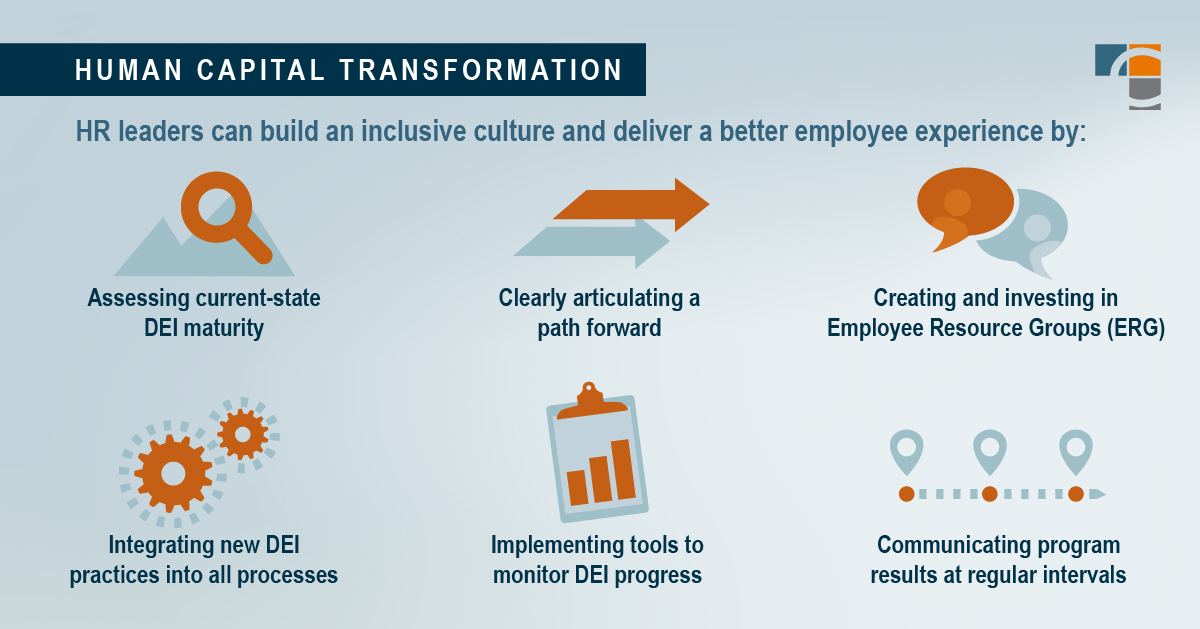
Fostering Unity: The Imperative of Diversity, Equity, and Inclusion (DEI) in the Workplace
Diversity, Equity, and Inclusion (DEI) have evolved from buzzwords to crucial pillars of organizational success. In the modern workplace, fostering a culture that embraces diversity in all its forms, ensures equity, and promotes inclusion is not just a moral imperative but a strategic necessity for businesses aiming to thrive in a global and interconnected world.
Understanding Diversity: Beyond Visible Differences
Diversity encompasses a spectrum of visible and invisible differences among individuals. It goes beyond race, gender, and ethnicity to include factors such as age, socioeconomic background, sexual orientation, abilities, and more. Embracing diversity means recognizing and valuing the unique perspectives, experiences, and contributions that each individual brings to the table.
Equity in Practice: Fairness and Justice
Equity is about creating fair and just opportunities for everyone, irrespective of their background. It involves recognizing and addressing systemic barriers that may hinder certain groups from fully participating and progressing within the organization. Implementing equity means ensuring that each individual has access to the resources, support, and opportunities needed to thrive.
Inclusion as a Culture: Going Beyond Numbers
Inclusion is the active, intentional effort to create a workplace culture where everyone feels valued, heard, and a sense of belonging. It goes beyond merely having diverse individuals present; it involves creating an environment where diverse perspectives are sought, respected, and integrated into decision-making processes. Inclusion is about fostering a sense of community and breaking down barriers to collaboration.
The Business Case for DEI: Driving Innovation and Success
Beyond being a moral imperative, there is a compelling business case for embracing DEI. Diverse teams bring a variety of perspectives, ideas, and approaches, fostering creativity and innovation. Companies that prioritize DEI often outperform their peers, attracting top talent, enhancing employee engagement, and better understanding and serving diverse customer bases.
Challenges on the Journey: Overcoming Bias and Resistance
Implementing DEI initiatives may face challenges, including implicit biases, resistance to change, and a lack of awareness. It requires a commitment from leadership to address these challenges head-on. Training programs, awareness campaigns, and creating accountability mechanisms are essential steps in overcoming resistance and embedding DEI into the organizational culture.
Leadership’s Role: Setting the Tone
Leadership plays a crucial role in driving DEI initiatives. Leaders must articulate a clear commitment to diversity, equity, and inclusion, and their actions should align with these values. This involves fostering an inclusive leadership style, addressing bias, and actively promoting a culture that values and celebrates diversity at all levels of the organization.
Employee Resource Groups (ERGs): Nurturing Affinity
Establishing Employee Resource Groups (ERGs) can be a valuable strategy for promoting DEI. ERGs provide a platform for employees with shared identities or interests to come together, share experiences, and offer support. These groups contribute to a sense of belonging and help organizations better understand the unique needs and perspectives of different employee communities.
Metrics and Accountability: Measuring Progress
To ensure the effectiveness of DEI initiatives, organizations should establish measurable goals and regularly track progress. Metrics could include representation at different organizational levels, employee satisfaction scores, and the impact of DEI initiatives on business outcomes. Accountability mechanisms should be in place to address any disparities and drive continuous improvement.
The Future of Work: Embracing Inclusive Excellence
In conclusion, the future of work is rooted in the principles of Diversity, Equity, and Inclusion. Organizations that embrace inclusive excellence create environments where individuals feel empowered to bring their whole selves to work, fostering a culture of innovation, collaboration, and success. As we navigate a rapidly changing world, prioritizing DEI is not just a strategic advantage but a fundamental requirement for sustained excellence.
For a deeper exploration of the imperative of Diversity, Equity, and Inclusion (DEI) in the workplace, check out this insightful article on DEI in the Workplace. Embrace the transformative power of diversity and inclusion to drive organizational success.
